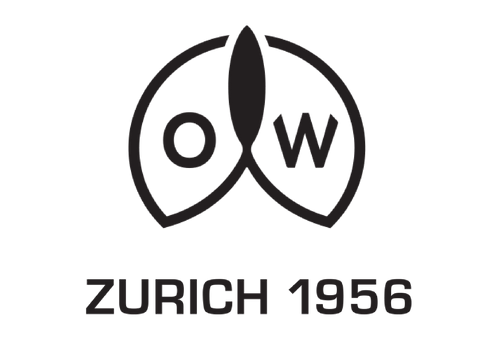AN EARLY BIRD WITH TIME ON ITS SIDE
Some might consider Bruce MacDonald lucky to be alive. Bruce disagrees. He believes fate is determined by a force higher than random chance, and that it was good fortune and good timing rather than luck that saved his life in Vietnam.
Unlike his father, who carried a lucky threepenny bit in his pocket every day of his life, Bruce is not superstitious. The only non-issue item he carried on his two tours of Vietnam was a serviceable wristwatch, but that was for entirely practical reasons. Bruce—or Mac, as he was known—shipped out to Vietnam in March of 1967. Soon after arriving, he was assigned to the 18th Mobile Army Surgical Hospital (MASH), stationed initially at Pleiku with the 4th Infantry Division, then later at Lai Khe with the 1st Infantry Division — The Big Red One.
Mac’s specific duty was as assistant and armed escort to the unit’s chaplain. Although chaplains were non-combatants and forbidden by the Geneva Convention to bear arms, they often became targets as they tended to the wounded or gave comfort and last rites to the dying. Each chaplain was therefore assigned an enlisted soldier as personal security detail. The soldier didn’t have to share the same faith as the chaplain; he didn’t even have to be religious. The only mandate was an unwavering devotion to the protection of the chaplain, even if that meant the soldier forsaking his own life. That 284 of the 300 chaplains who served in Vietnam made it home safe and sound is thanks in no small part to their guardian angels dressed in olive fatigues, such as Mac.
The chaplain was responsible for the spiritual wellbeing of all the officers, men and patients in the area and ran a very tight schedule. Mac knew he’d need a more reliable watch than the Texas pawn-shop special he’d been wearing when he arrived in Vietnam. A combination of the monsoon humidity and the salinity of his own sweat had eaten away at its leather strap and corroded the movement.
He noticed a small classified advertisement, in the Army Times newspaper, for a 17-jewel, 24-hour military watch, discounted to US service personnel. It boasted a special revolving bezel, showing AM and PM times in any two time zones simultaneously. The copy read ‘Perfect for use in wet climates, mud, rain—100% waterproof’. It also came on a rugged-looking, stainless-steel bracelet. Mac was sold. Ollech & Wajs wasn’t a brand he had heard of before, but he liked the watch’s name , Early Bird. Besides, even back then, $39.95 for a Swiss watch was too good a bargain to pass up. Barely two weeks after he had mailed the coupon and postal order to the address in Zurich, the watch arrived. To his surprise—the advert had been in black and white—the bezel was metallic red and blue. The colours reminded him of a can of Pepsi Cola, and he loved it.
As was good infantry practice, Mac wore his Early Bird on the underside of his wrist. There were three reasons why soldiers wore watches this way. In the field, the glare from a crystal could give away its wearer’s position to the enemy, and it was less likely to catch the light worn face down; it enabled the wearer to read the watch without having to take his hand off a shouldered weapon; and a watch’s crystal was less prone to being cracked or scuffed on the inside of the wrist. Mac often used to set the outer bezel to California time to remind him of San Pedro Bay, where he had grown up. Each time he looked at it, he’d be momentarily transported back to endless summers in wharfside diners, enjoying market-fresh seafood and watching the pleasure steamers chug in and out of the harbour.
Irrespective of rank or regiment, most soldiers in Vietnam had the same relationship with time—they all wanted it to elapse as quickly as possible. Mac took small comfort in knowing that with each complete revolution of his Early Bird’s hour hand, he was a day closer to going home, or taking a seat aboard the ‘Freedom Bird’, as it was affectionally known.
Timing played an important role in both of Bruce MacDonald’s tours of Vietnam, and it was a critical factor in the event that saved his life. Two months into his first tour, he was due to fly from Long Binh to join his new unit the 18th MASH at Pleiku. On route to the airfield, his jeep was forced to a screeching halt, stopping just short of a fallen tree lying across the narrow jungle road. The cloud of dust still hanging in the air, and the group of Vietnamese farmers sheepishly emerging from the rubber plantation, told Mac that the tree had been felled not more than a few of seconds before his jeep had come round the corner. His first thought was not on his good fortune in narrowly avoiding a collision but on the possibility of punishment for missing a movement—an offence under the Uniform Code of Military Justice. It took several hours to clear the road, by which time he had long missed the scheduled flight—the only one that day. When Mac finally arrived at the 18th, a day late, he did not receive the dressing-down he was anticipating from his new boss. Quite the opposite, in fact—the chaplain was overwhelmed with relief and joy to see him. He had been about to write 'the letter’ to Mac’s parents, informing them of their son’s death. The plane that Mac should have been on had crashed before arriving at Pleiku, tragically killing all on board. The chaplain told Mac it was clear that God had other plans for him, the first of which was taking care of the chaplain. For the next 18 months, Mac did just that. Whenever the chaplain ventured beyond the relative safety of the base to carry out his pastoral work, Mac went with him, a bullet chambered in his Colt 45 and five spare clips in his webbing.
Even at the peak of the Tet offensive, with hundreds of mortar rounds and rockets raining down on Lai Khe, and Viet Cong guerrillas threatening to breach the perimeter wire, the chaplain was not overly concerned. With God watching over him and Mac covering all other arcs, he felt quite safe.
When Mac wasn’t driving the chaplain around to various engagements, both men would provide support for the medical teams at the MASH. If you’ve ever seen the eponymously named 1970s TV show, you’ll have a rough idea of what a mobile army surgical hospital looked like. A sprawling shanty town of inflatable and expandable emergency rooms, operating theatres and wards, invariably sited close to a helipad and usually within the perimeter of a US military base, its purpose was to provide immediate triage and emergency medical care for US and friendly forces operating in area. The MASH unit would also treat enemy combatants and offer ongoing medical assistance to local Vietnamese communities.
The MASH was given advance notice of operations by the units it supported, and when a'push’ was imminent, it was all hands on. Mac would listen intently on a radio to operational unit activity, and as soon as he heard a ‘dust off’, he would move out to the helipad in anticipation of the incoming casualties. He recalls anxiously watching the sweep of his Early Bird’s seconds hand. From the moment he heard the distinctive thuds of the approaching Hueys—often several at a time—he could predict to the second exactly when the first chopper would touch down. It was then imperative to get the casualties from the chopper and into triage in the least amount of time possible. This was a drill practised over and over until not a single second was wasted. Mac would help lift off the casualties, apply pressure to wounds or elevate IV bags, as instructed by the medics. Once in triage, casualties would be prioritised and prepared for surgery by the doctors and nurses. Those that were beyond medical help would be left in the care of the chaplain. He would offer compassion in their final moments, and Mac too would provide whatever comfort he could.
One of the more onerous tasks Mac undertook was inventorying and bagging up deceased soldiers’ personal possessions, or what was left of them, so they could be repatriated. Such work was possible only with a degree of emotional detachment, but Mac could not help but be moved by seeing a life reduced a few personal effects in a clear plastic bag. The items often included watches, with some Early Birds amongst them, instantly identifiable by their distinctive colours.
Fortunately, most of those who made it to the MASH were successfully stabilised and sent on to a military hospital in Saigon, or one of the US Navy hospital ships floating in the gulf of Tonkin, for further treatment. Many of the soldiers were simply patched up and returned to their units within days, often straight back into the battles from which they been medivacked.
Mac received his orders to return home almost two years to the day after arriving in Vietnam. On leaving the army, he went back to college to finish his degree. He wore the Early Bird every day for another four years. Having survived a war-zone virtually unscathed, it was the back on the comparative safety of home soil where the watch was to suffer its first major trauma. During a geology field trip in the California mountains, the bezel became detached and was lost. Perhaps the abuse the watch had endured over the previous few years had taken its toll. In early 1974, Mac placed the bezel-less watch safely into a box, alongside his medals, where it remained for the next 34 years.
When the box was reopened in 2008, Mac wasn’t the slightest bit surprised to find that his watch still worked perfectly. It took only two winds to resuscitate the old ‘Fabrique d’Horlogerie Fontainemelon 72’ mechanical movement and set the seconds hand in motion. Just as the watch had been a portal through which he could be transported back home to California, it now takes him back to South Vietnam. Memories are like scratches and scars on a watch case—they burnish and soften over time but rarely entirely disappear. Some of Mac’s recollections are crystal-clear; other moments have become distant, like scenes from a film he watched only once.
A day Bruce MacDonald will never forget is the day he missed the flight to Pleiku—the day that should have been his last. His OW Early Bird is a resonant talisman that he will treasure forever, just as his father had treasured that threepenny piece.








